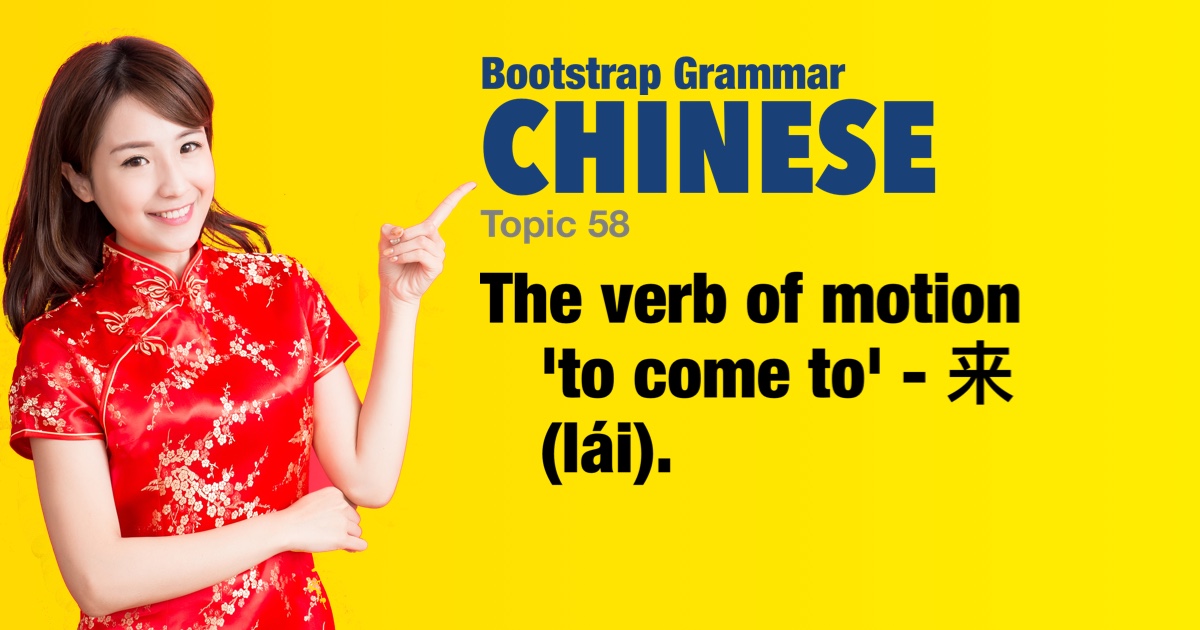Chinese grammar - The verb of motion 'to come to' - 来 (lái). |
|||
|
|||
The Chinese verb 来 (lái) means 'to come to'. When used alone (without a preposition) and with a direct object, it strictly means 'to come to (the speaker)'. In the next topic we will see how it can be used to mean 'to come from'. And in later topics we will see compound verbs that use 来 to express variations such as 'to come in', 'to come down' etc. |
| Examples: | |
|
他来这里。
tā lái zhèlǐ. He comes here.
|
|
|
请来我的家。
qǐng lái wǒ de jiā. Please come to my house. |
|
|
他们明天不来。
tāmen míngtiān bù lái. They are not coming tomorrow. |
|
|
你想来吗?
nǐ xiǎng lái ma? Do you want to come? |
|
|
她来自中国。
tā lái zì zhōngguó. She comes from China.
|
|
|
我们一起来吃饭。
wǒmen yīqǐ lái chīfàn. We come together to eat. |
|
|
你来帮忙吗?
nǐ lái bāngmáng ma? Are you coming to help?
|
|
|
他的朋友想来我的家。
tā de péngyǒu xiǎng lái wǒ de jiā. His friend wants to come to my house. |
|
|
我和你的老师一起来这里。
wǒ hé nǐ de lǎoshī yìqǐ lái zhèlǐ. I am coming here together with your teacher. |
|
|
我们想来看电影。
wǒmen xiǎng lái kàn diànyǐng. We want to come to watch a movie. |
|
|
你的妹妹和她的朋友来吃饭。
nǐ de mèimei hé tā de péngyǒu lái chīfàn. Your sister and her friend are coming to eat. |
|
|
他想来学习中文。
tā xiǎng lái xuéxí zhōngwén. He wants to come to study Chinese. |
|
|
我的家人来参观我们的学校。
wǒ de jiārén lái cānguān wǒmen de xuéxiào. My family is coming to visit our school.
|
|
|
她和朋友想来散步。
tā hé péngyǒu xiǎng lái sànbù. She and her friend want to come for a walk.
|
|
|
我们的老师来开会。
wǒmen de lǎoshī lái kāihuì. Our teacher is coming to the meeting.
|
|
 |
|



